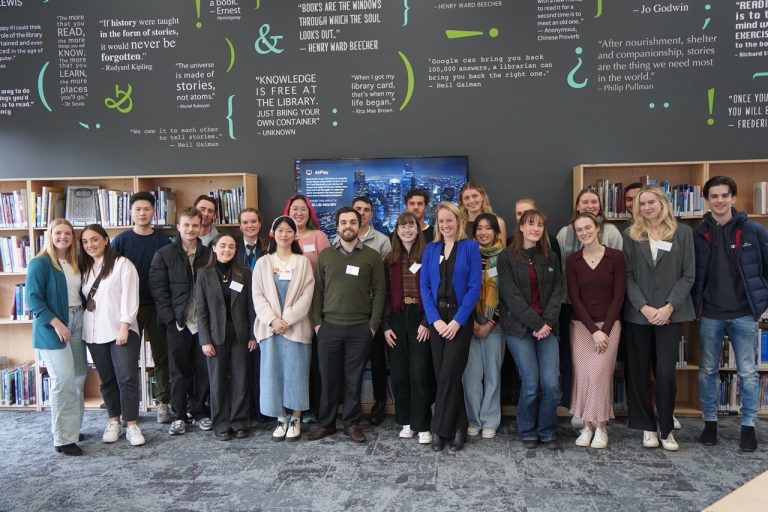These 90,000 hours can be spent just completing tasks to earn income, or instead, spent doing meaningful and purposeful work that provides greater fulfilment than just financial reward. If you want to make an impact in your life, then choosing a career with purpose is probably the easiest way to do that.
Not-for-profit organisation ‘80,000 Hours’ (https://80000hours.org) reviewed two decades of research into the key factors that contribute to a satisfying life and career and determined that the following six criteria are what makes ‘a dream job’:
- Work that is engaging
- Work that involves helping others
- Work that uses your natural strengths
- Working in a supportive environment
- Work without major negatives
- Work that fits with the rest of your life
1. Engaging work
Engaging work is work that holds your attention and keeps you interested over an extended period, but this will vary greatly from person to person. For one person this might be coding websites, for another, it might mean analysing data to make business decisions whilst another employee will be engaged when writing creative stories. Whatever it is, engaging work will keep your attention and give you a sense of ‘being in ‘flow’, that feeling when you lose a sense of time and feel energised by what you are doing.
Sometimes it takes time to work out what type of work will engage you but the most effective way to do this is to just try many different things. You will soon work out what you do and don’t like by actually taking action.
2. Work that involves helping others
‘Helping others’ is also a key criterion when it comes to finding meaningful work. There is a growing body of evidence that helping others is a key ingredient for life satisfaction with people who volunteer likely to be both healthier and happier.
There are different ways that individuals can help others. For some, it may mean working very closely with people to help them in different ways such as working as a nurse, teacher, counsellor, social worker or designer. However, other individuals can also find very meaningful work by working in a ‘behind the scenes’ role that helps people on a larger scale such as developing health or education policies or working for an organisation that helps people. An example of this might be working as a lawyer or accountant for a school, hospital, not-for-profit organisation or a ‘B-Corporation’ (https://bcorporation.com.au), an organisation certified as one that successfully balances profit with purpose).
Some individuals, they can also fulfil their ‘helper’ needs, by managing a team and spending time coaching and mentoring less experienced staff to fill their helping bucket.
Helping others isn’t the only way to finding a meaningful career, but it is widely accepted by researchers of positive psychology that it is one of the most powerful methods for securing purposeful work.
3. Work that uses your natural strengths
Positive psychology research also tells us that individuals feel more fulfilled when they are utilising their natural strengths, that is, doing work that comes naturally. When we use our signature strengths, work tends to feel less like work and we are more likely to feel engaged, energised, and motivated. Completing work that comes naturally gives employees a greater sense of achievement and is more likely to lead to fulfilment.
The first step is to work out what are your natural strengths. This can be completed informally by asking people where they see you at your best, or by completing some ‘strengths coaching’ which may involve completing a strengths assessment and discussing the key insights with a coach.
4. Working in a supportive environment
Many employees get fulfilment from the relationships that they have at work whether that be with their direct manager or with their peers. However, research has shown that whilst some employees feel much more fulfilled having a few good friends at work, for many others, it is not so much friendship that makes work fulfilling but simply knowing that they will be supported if they need assistance or run into problems.
When choosing a meaningful career, it is equally important to think about whether the work environment will suit your personality as much as it is important to think about the nature of the actual work. A dream role can quickly sour in a toxic environment just as a more menial role can be okay if surrounded by good colleagues. Before choosing your next role, think about what sort of people you will work best with and the work environment in which you will thrive.
5. Lack of major negatives
To be fulfilled at work it is also important that there are no factors present that will make work a truly negative experience. Examples of this may include an extremely long commute, excessive after-hours work that is not appreciated or paid in lieu, a salary that is well below market rate, or working in a work environment that is not aesthetically pleasing. Such negatives can affect an employee’s enjoyment at work even if it isn’t about the work itself.
6. Work that fits with the rest of your life
To feel fulfilled, work must also fit with how you wish to live your life. This will vary greatly for every employee as not everyone wants the same things out of life. For example, whilst one employee may value a work-life balance, another employee may prefer to devote their life to work over other things. What is important is how your work fits into the life you want to lead, whatever that may be.
Once you reach adulthood, you are likely to spend almost half your waking hours focused on work. Therefore, if you can increase the positive impact of those 80,000 hours even just a very small amount, it will probably have a far greater impact than making modifications to any other part of your life.
Written by CGA Careers Expert – Leah Lambart

Leah is a Career & Interview Coach, Founder of Melbourne-based career coaching business, Relaunch Me and host of the Relaunch Your Career podcast.
Did you check out last month’s career’s article? Networking tips for introverts



